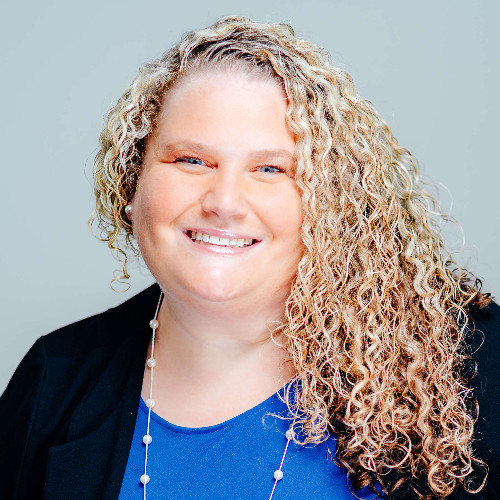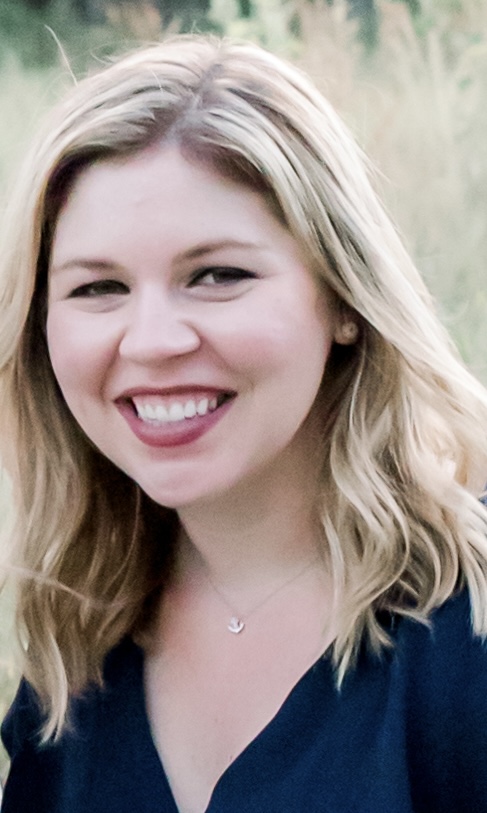Rokki Garcia and Courtney Lichtenstein are both certified neonatal therapists at Joe DiMaggio Children’s Hospital, specializing in speech-language pathology. They were drawn to the field for the ability to foster deep connections with parents and colleagues from different specialties, as well as for the emphasis on a multidisciplinary approach to the treatment of infants in the NICU. While Rokki and Courtney’s efforts mainly center around pediatric feeding, they are both driven by a deep-seated passion to help a baby develop holistically from head-to-toe. Rokki, after working in the context of the NICU for nine years, has returned to her original focus of seeing children with craniofacial anomalies and cleft palates. Courtney spends most of her time interacting with patients with a wide range of diagnoses in the NICU. There, she works with parents to create individualized feeding plans for their babies, empowering them to be as involved in the process as possible. She also works in a high-risk follow-up clinic that offers sustained and comprehensive care to babies with neurological conditions, such as HIE. At the clinic, Courtney works alongside a collaborative team of providers, including neurologists, such as Dr. Monica Arroyo, physiatrists, social workers, dietitians, physical therapists, and occupational therapists.
Rokki and Courtney hold the mindset that the best neonatal therapists are those who engage in family-centered care, as opposed to simply patient-centered care. They view their roles not only as facilitating development in the infants and children that they see, but as helping parents navigate the barriers they encounter along their journeys. For HIE parents, the sheer number of developmental goals they want their children to accomplish can quickly become overwhelming. Focusing on too much all at once often gives rise to feelings of helplessness. Thus, from the beginning of their interactions with parents, Rokki and Courtney initiate open conversations, where they ask parents what their expectations and goals for their children are. From there, they help parents collapse their goals down to something realistic, breaking apart that exhaustive list into digestible chunks. In doing so, Rokki and Courtney inspire parents to remain hopeful that good things will come out of therapy. Ultimately, open communication and taking the time to understand a parent’s perspective lie at the heart of family-centered care. Every baby and every family carry with them a unique story—by listening to those stories, Rokki and Courtney are able to create plans tailored to each individual case.
Furthermore, another key component of family-centered care is handing parents back some of the autonomy that may have been taken away from them. Acknowledging how difficult it is for parents to feel like accessories in the care of their children, Rokki and Courtney encourage parents to appreciate all the ways they can maximize their children’s development. They work with the parents and help equip them with different approaches to help their child develop. They have found that parents need to experiment with different approaches—some which work and some which don’t—so they can understand through firsthand experiences what is best for their babies. Their primary focus is to support parents to be autonomous caregivers in their infant’s medical care and development. Parents are the specialists in the lives of their children—the lifelong advocates and ultimate insiders.
In their day-to-day work, Rokki and Courtney have been proud of their ability to be flexible and adapt their therapy sessions to meet the needs of families. When parents are in the NICU, their emotional climate is not only clouded by the stress of their baby’s health. There are so many additional factors that contribute to the whirlwind of stress, whether it’s COVID-19, not being able to work, or juggling taking care of other children. So, while Rokki and Courtney come into their sessions with their own goals, they realize these preconceived agendas aren’t set in stone. Instead, when they’re with parents, Rokki and Courtney “read the room,” so they can meet parents where they are at. Sometimes, that means realizing that now might not be the right time for therapy. What might best support parents that day could just be having the opportunity to spend some quality alone time with their babies. It can be really traumatic for parents in the hospital to constantly feel like they’re playing catch-up, finding out what has happened to their own children after the fact through secondhand information. Allowing parents to have that uninterrupted one-on-one time with their children can make the foreign hospital environment feel a little more like home. Telling parents they are the experts in the care of their children is certainly helpful. But showing parents how much they are valued through these simple, yet meaningful, gestures of inclusion is key.
Not only do Rokki and Courtney help parents find hope, but they hold so much hope themselves. They hope that providers will continue to educate themselves about the complexities of trauma in the critical care unit. They hope that more comprehensive services to promote parent support—especially in the beginning phases of HIE, when a baby is being cooled and first diagnosed—will be built out in various NICUs. Through these services, perhaps clinicians can better help parents retain the energy that trauma drains them of and harness it back into their children.
While there is certainly room for improvement in the space of support for HIE parents, Rokki and Courtney are grateful for all the progress that has already been made through parent-to-parent organizations, such as Hope for HIE. For them, the vision of pure hope is seeing how families are able to grow and thrive with their child, even after such difficult beginnings. When they hear stories from parents of their child eating solids for the first time or rolling over in therapy…it’s those moments that make a family. To witness the resilience of families as they embrace their new versions of normal is both powerful and humbling.
So, to any parent who may be feeling scared or overwhelmed about what the future holds, Rokki and Courtney would leave them with this irrefutable message: Each baby is special, undefined by any diagnosis. Babies can grow, thrive, and develop on their own paths, even if those paths aren’t cookie-cutter. Always remember that no accomplishment is too small to be celebrated. And those milestones that your child makes are not only a testament to their strength and hard work, but to yours as well.


Connect with families, read inspiring stories, and get helpful resources delivered right to your inbox.